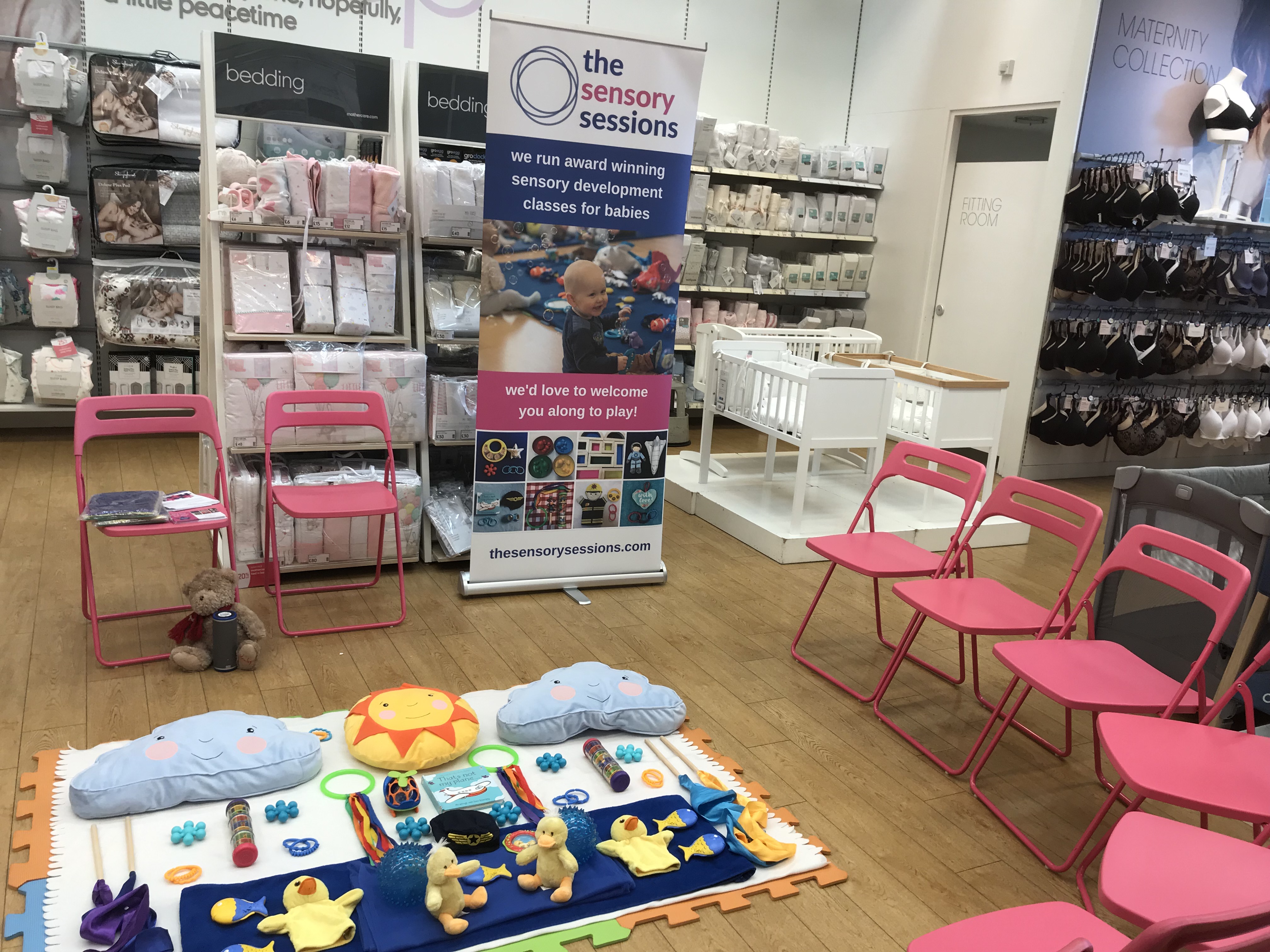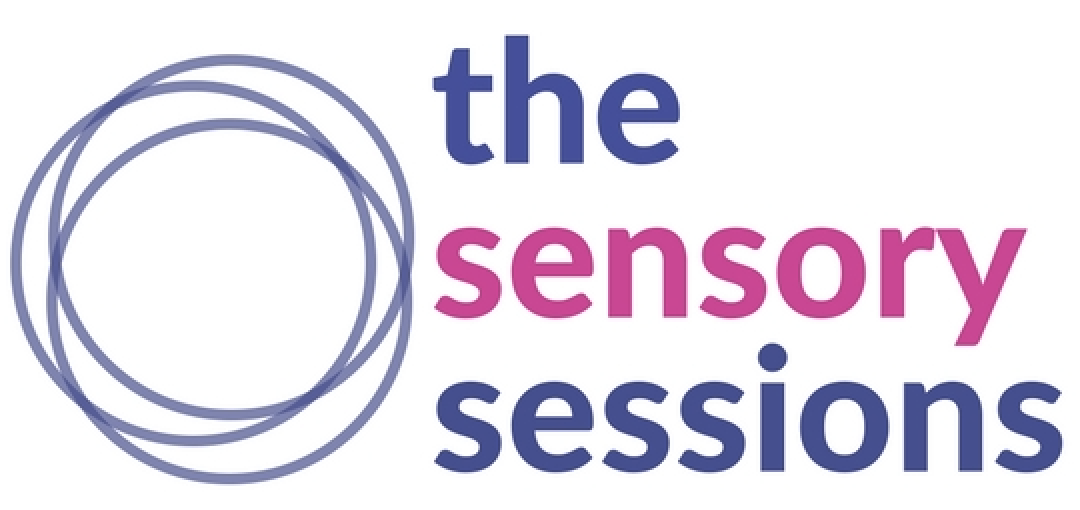When is the best time to start a sensory development class?
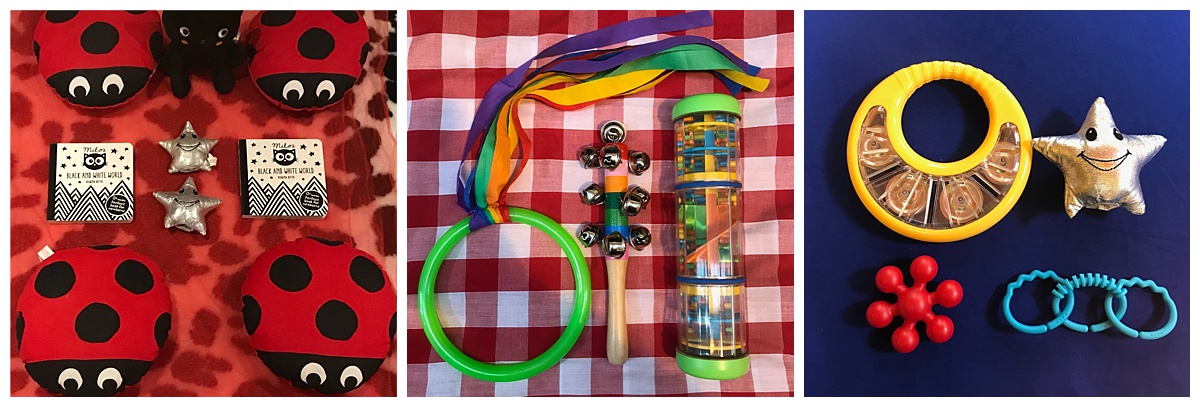
We get asked a lot by email and in class about when the best time to start a sensory development class is and whether babies benefit from attending sessions when they are really young so thought we’d answer this for you and show you the evidence behind our answer!
Babies benefit from sensory development activities from birth
When a little one is born the areas in their brain that process sensory information aren’t yet ‘connected’ so we know from lots of research that playing in a sensory rich way helps them make lots of new brain connections, it is a huge amount of fun and we always hope that we can give you some ideas in class that you can carry on and do at home.
why are sensory development activities important for babies?
The Pyramid of Learning by occupational therapists Mary Sue Williams & Sherry Shellenberger informs our programme. When a baby is born, they start at the bottom of the pyramid with their brain and spinal cord. By the time they are ready for academic learning (in the UK this is the age of 5) they need to have acquired all of the skills in the pyramid to prepare them to sit down to learn.
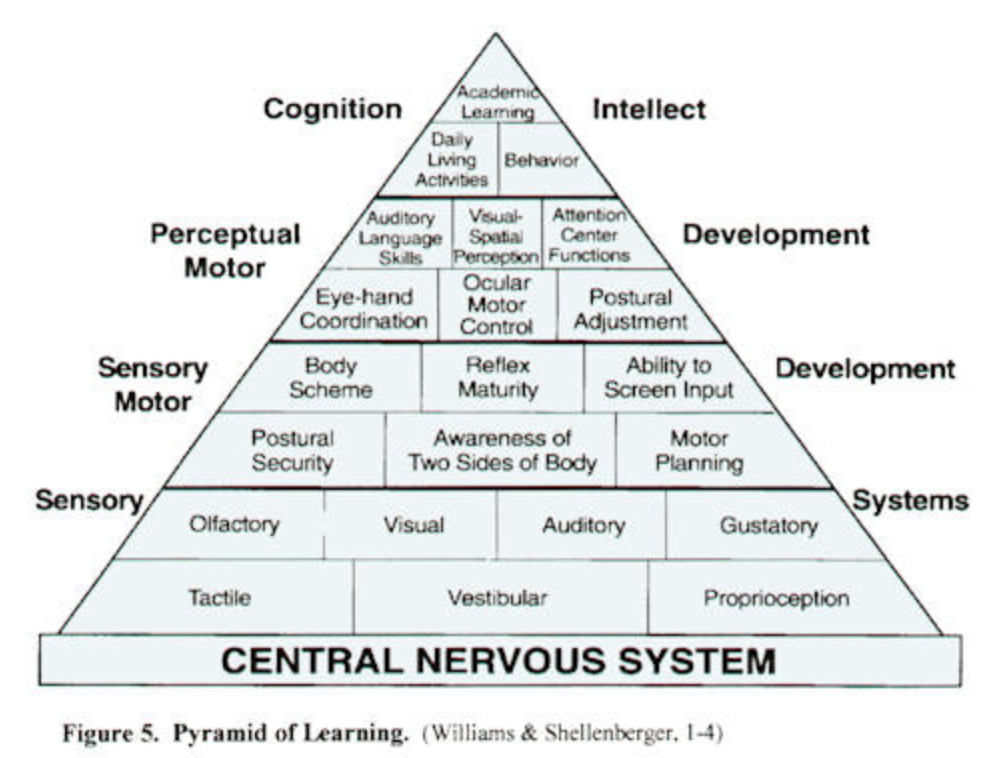
At the very base of the pyramid is our sensory systems which is the first skills that our little ones acquire first before they can build all of the other skills they need on the top of them, they really are the foundation to how we learn and make sense of the world. As adults we are able to process lots of sensory information all at once to make a picture of how we manage in the world and this is called sensory integration. In our babies they get the information from all of their senses separately and through practice and repetition they are able to process information from their senses.
Babies build their motor skills, perception skills, cognition and intellect on top of the information that they receive from their sensory systems
Baby brain development
Your baby is born with over 100 billion brain cells, the most they ever have, and these cells aren’t yet in pathways. When we do activities these cells form pathways in the brain and between birth and the age of three their brains undergo the fastest rate of growth than at any point in their lifespan. 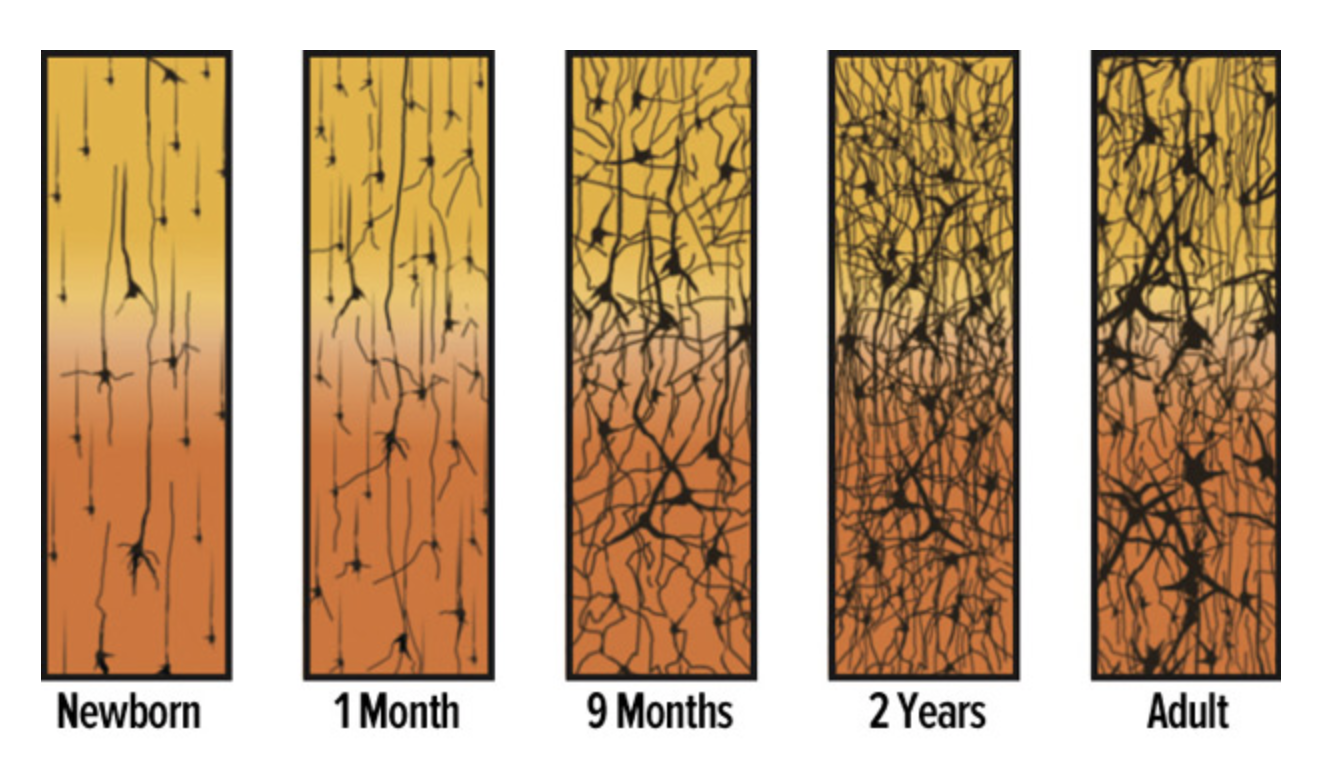
Diagram of synapse density reproduced with kind permission from Urban Child Institute, from Corel, JL
Doing activities with our babies assists their sensory development, helps form the pathways in their brain and repetition really helps the signals go along these pathways quicker.
How does going to a class help?
Our class programme has been developed by an occupational therapist, trained in sensory development with babies, and it considers each of our baby’s senses and their brain development. Each of your baby’s senses is stimulated in class to give our baby’s the opportunity to integrate them and we repeat activities often to help brain connections.
This is suitable from birth and while our youngest babies will manage part of the class, they are still benefitting hugely from creating the pathways and repetition that you do at home while your baby is awake will assist these brain pathways.
It can give you the confidence to play with your baby and know that the activities you are doing is helping their brain development, you’ll get an opportunity to ask any questions about baby development and play that you have and you’ll meet our amazing community of new parents too.
When is the right time to start?
When you feel ready. Our classes take place on mats on the floor so whenever you feel able to get up and down and lift your baby you are really welcome to join us. Our youngest baby attending was 13 days old so you are welcome to come play whenever works for you! We’ll give you advice on pacing the activities depending on your baby’s age and we are completely baby led so you are welcome to attend to your baby’s needs by feeding, changing, going for a little walk, whenever you need to.
How do I find out more information?
If you’d like more information on our classes and venues, please visit our sensory development class information or timetable pages. If you’d like more information on baby development and play you’d be really welcome to attend our free ‘how to play with your baby’ workshop that we run
